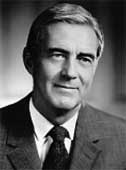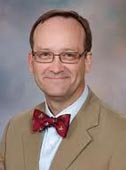Metacognition, Error
Management and
Intellectual Humility
THE 2012 BILL BIGELOW LECTURE

Wilfred G Bigelow
|
Cardiac Surgery Chair Chris
Caldarone described Thoralf
Sundt as a summa cum laude
graduate of Princeton, in the
same class as Jim Rutka. Thor
finished medical school at Johns
Hopkins and surgical residency
at the Massachusetts General
Hospital. He completed cardiothoracic
training at Washington
University in St. Louis and
Harefield Hospital in England.
Thor drew attention to the Bigelow family of surgeons
who practiced in Boston and quoted generously from
Bill Bigelow's book Cold Hearts. He emphasized Bill's
interest in the relationship of the mind and body to the
practice of medicine, as well of the importance of teaching
"the limits of what we know", a touching reference to
the intellectual humility of this brilliant surgeon.
Thor presented a difficult case- a 40 year old father of
two children who had undergone prior radiation for
Hodgkin's disease. Following coronary bypass and mitral
valve reconstruction, he returned with endocarditis. His
second operation required a Cabral aortic root replacement
with reimplantation of the coronary arteries. The
patient developed right ventricular
failure and eventually died,
despite mechanical support with
a right ventricular assist device.
At post-mortem examination,
the right coronary graft was
kinked, so no amount of right
ventricular assist would solve the
problem.

Thoralf M. Sundt
|
The axiom "check the right coronary
artery if the right ventricle is failing" is now the
answer to a standard board examination question, but
it was completely overlooked during this tragic case.
The case inspired Thor's interest in metacognition – the
study of cognition as typified by Daniel Kahneman,
Nobel laureate in economics. His book ‘Thinking Fast
and Slow" is a current New York Times best seller.
Surgeons are decision –makers and they rely heavily on
fast thinking. It is important for management of complex
problems to also include slow thinking . This has
been well illustrated in previous rounds and publications
by our colleague Carol- Anne Moulton (1).
"Surgeons rely on heuristics (rules of thumb and shortcuts
to conclusions) and their decisions are influenced by
biases. Important components of surgical thinking are
pattern recognition, availability and recency bias, hedonic
impact (acceptability), selective attention, fixation
(for example on the right ventricle instead of the right
coronary) and intuitive decision making (the fast track)."
Thor drew our attention to "How We Know What Isn't
So?" by Thomas Gilovich. He told an interesting anecdote
about his son's refusal to accept Gilovich's disproving
the notion of "the hot hand" in basketball. His son
was a college basketball player, and like most athletes
and sports fans, he still believes in the mythology of the
"hot hand".
"In general, we find the unexpected to be unpleasant;
the amygdala reacts because it does not like the unexpected.
Francis Bacon and Bill Bigelow knew well the
problem of confirmation bias. We reject disconfirmatory
evidence, even after we have seen convincing evidence
against our perceptually biased view."
Thor emphasized the importance of team work in the
management of errors. He quoted Denis Cortese, the
former CEO of the Mayo Clinic. "When doctors work
together before graduation, their collaboration is called
cheating, when they work together after, it is called collaboration."
This is a problematical approach to teaching
team work. Complexity leads to errors and errors can be
managed in three general ways: 1. Avoid them, 2. Trap
them and 3. Mitigate them. High reliability organizations
manage error by stepping back, trapping the error
and then mitigating it. Thor recommends "mindful
engagement- not checklists". He recognized that he was
speaking in a "checklist monastery", but stated nonetheless
that he feels mindful engagement is even better, i.e.
asking each team member to say what they think and
what they worry about during the team huddle - to
speak before the crisis, not simply listen to a recitation
of the checklist. Thor conducted a briefing study on
mindful engagement. He found that it cut the time that
the circulating nurse is out of the operating room in half,
and cut errors in half.
He quoted Tony Dungee, All-American football player
at the University of Minnesota and Super Bowl winning
coach of the Indiana Colts: "I don't know anyone
who performs better if you yell at them". This approach
worked well in Dungee's practice, though it goes against
the style of Vince Lombardi, John Madden and other
more punitive coaches.
|
Thor presented a second case, a Christmas day cardiac
transplant on a patient with a left ventricular assist
device. The perfusionist knew in advance that there
would be problems, but did not speak up. The transplant
resulted in air embolization, causing fatal cerebral
damage. Like the perfusionist, most people won't speak
up, even when they know that there is a problem- even
if they themselves may be harmed (see Marv Tile's comment
below).
Non-Technical Skills for surgeons like communication
and leadership are evaluated in 360 degree assessments at
Massachusetts General Hospital. Thor showed his own
360 assessment, including less flattering comments made
by his colleagues under the headings of "start to do the
following" and "stop doing these things."
Thor closed on a gracious note, reminding us that "we all
want to be like Bill Bigelow, imitating his humility, his
open-mindedness, and his kindness and consideration".
In the discussion period, Bernie Goldman told the story
about Bigelow's humility in the laboratory. "We were
fixed on the outcome and didn't realize that we had not
found hibernin - the imaginary hormone that allows the
groundhog to hibernate. It was only when outside people-
the organic chemists - looked at our work that we
finally found our isolated magic molecule was a solvent
eluted from for the plastic tubing used in our separation
process. We had a fixed focus." The importance of asking
others was a recurring theme in the lecture. Bigelow
published this embarrassing lesson in a famous article in
the journal Surgery.
Chris Caldarone commented on the data showing that
interns sign out with a slow, extremely detailed process
that would take pages to record. Intermediate staff use
paragraphs, and senior staff use extremely short words or
facts. "We only mention out of pattern patients: ‘Watch
this guy, the rest are OK'". Kahneman points out that
fast thinking like that can be quite problematic. Novices
think algorithmically and therefore slowly. Experts
think fast, but they have more risk of confirmation
bias. Outsiders pause and ask: "Are we ready?" at single
points of vulnerability. At those points, the team should
go to a low energy, cautious state, similar to Carol-Anne
Moulton's work on slowing down in crises.
Avery Nathens asked about how teamwork should be
taught. Thor feels that it is probably best done through
role modeling. He has tried crew resource management,
using a day spent with representatives of the airline
industry. "These lessons don't last." He is trying to
transform a whole department, but has not yet found
the ideal technique.
Marv Tile recommended the book "Surgeons, Pilots and
Astronauts" and told the story of the navigator who,
though he knew the plane was running out of gas, did
not speak up against the authority gradient, so that he
would not offend the pilot and first officer. Andrew
Dueck said work hour limitations, the assignment of an
acute care service, nurse changeovers in the operating
room and 12 hour cases are causes of handover errors
that we can't control. Thor answered that "continuity
was our remedy in the old days - no time off, endless
hours on call." This has drawn attention to better signoffs
and importance of mindful engagement. To bring
each new participant up to speed, the airlines use an
action plan called "creating a team and maintaining a
team". It requires a thorough briefing, not just "I am
covering lunch".
David Latter asked about the larger team, the physiotherapists
and others who are not usually considered part
of the surgical cockpit crew.
"To address this, Bruce Keogh in the UK has dropped
reporting outcome by surgeon and reports instead
the outcome by surgical team. Anecdotally, Members
of Parliament were shocked to learn from that study
that half the surgeons were below average, unlike in
Lake Wobegon, the apocryphal Minnesota community,
‘where all the women are strong, all the men are goodlooking,
and all the children are above average'."
M.M.
(1) Moulton, C., Regehr, G, Lingard, L., Merritt C., Macrae, H.
Slowing down When You Should': Initiators and Influences
of the Transition from the Routine to the Effortful. Journal
of Gastrointestinal Surgery, 14.6: 1019-1026, 2010.
|